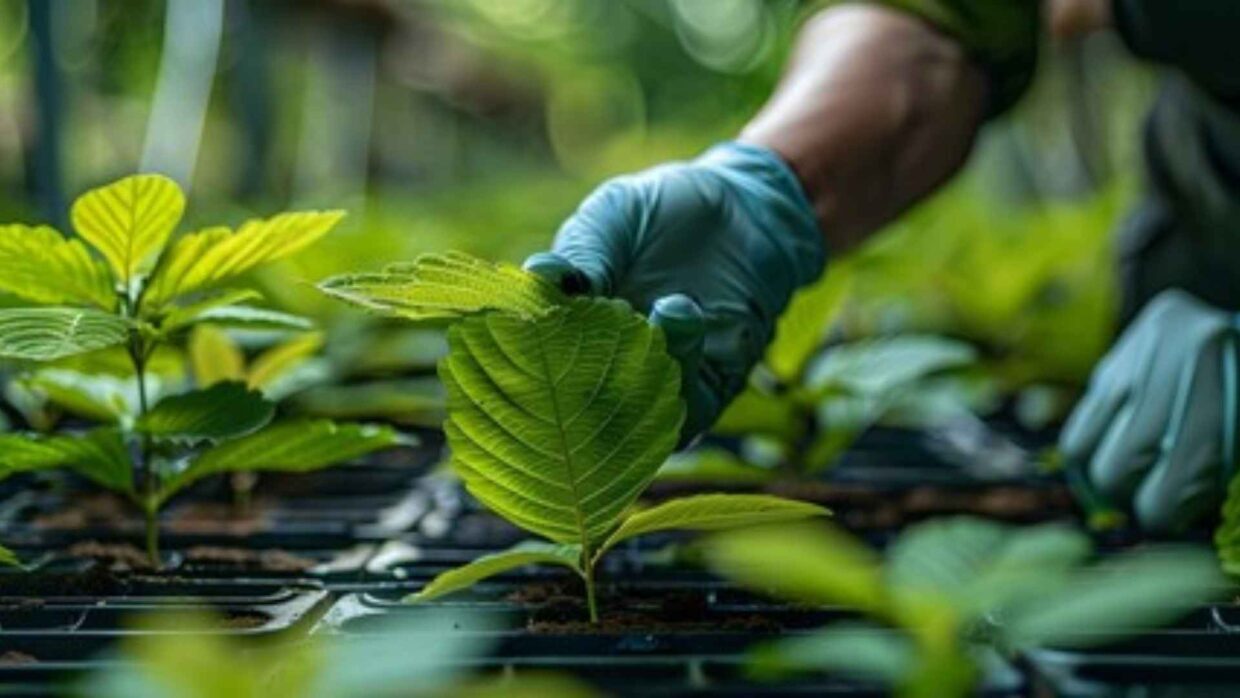As the cannabis industry continues to evolve, new cannabinoids are emerging, each with unique properties and effects. THC (tetrahydrocannabinol) and THCP (tetrahydrocannabiphorol) are gaining significant attention. While THC is well-known for its psychoactive effects, THCP is a relatively discovery that may offer even more potent effects.
This blog post will explore the differences, similarities, benefits, and potential uses of THC and THCP, helping you understand what sets them apart.
What is THC?

THC, or tetrahydrocannabinol, is the primary psychoactive compound found in cannabis. It is responsible for the “high” that users experience when consuming marijuana. THC interacts with the body’s endocannabinoid system (ECS) by binding to cannabinoid receptors, primarily CB1 receptors in the brain, leading to various physiological and psychological effects.
Uses of THC
THC has a wide range of applications, both recreational and medicinal:
- Pain Relief: THC is known for its analgesic properties and is often used to manage chronic pain conditions.
- Appetite Stimulation: Commonly referred to as “the munchies,” THC can increase appetite, making it useful for patients undergoing treatments like chemotherapy.
- Nausea Reduction: THC has antiemetic properties that can help alleviate nausea and vomiting.
- Sleep Aid: Many users report improved sleep quality when using THC, making it beneficial for those suffering from insomnia.
Side Effects of THC
While THC offers various benefits, it also comes with potential side effects:
- Psychoactive Effects: The most notable side effect is the altered state of consciousness or “high.”
- Anxiety and Paranoia: Some users may experience heightened anxiety or paranoia, especially at higher doses.
- Dry Mouth and Red Eyes: Commonly known as “cottonmouth,” these side effects can be uncomfortable but are generally harmless.
- Impaired Coordination: THC can affect motor skills and coordination, making activities like driving dangerous.
What is THCP?
THCP, or tetrahydrocannabiphorol, is a newly discovered cannabinoid identified in 2019. It is structurally similar to THC but has a longer alkyl side chain, which may enhance its binding affinity to cannabinoid receptors. Preliminary research suggests that THCP could be significantly more potent than THC.
Uses of THCP
While research on THCP is still in its infancy, it shows promise for various applications:
- Enhanced Pain Relief: Due to its higher potency, THCP may provide more effective pain relief compared to THC.
- Mood Enhancement: Like THC, THCP may also help improve mood and reduce anxiety.
- Potential Therapeutic Applications: Ongoing research could uncover additional therapeutic benefits of THCP in treating various medical conditions.
Side Effects of THCP
As a relatively new compound, the long-term effects and safety profile of THCP are not yet fully understood. However, it may share some common side effects with THC:
- Psychoactive Effects: Users may experience a strong high similar to that of THC but potentially more intense.
- Anxiety and Paranoia: Given its potency, there may be an increased risk of anxiety or paranoia.
- Impaired Coordination: Similar to THC, THCP may impair motor skills and coordination.
Comparing THC vs THCP
1. Chemical Structure
The primary difference between THC and THCP lies in their chemical structure. While both compounds share a similar core structure, THCP has a longer alkyl side chain. This structural difference is believed to enhance THCP’s binding affinity to cannabinoid receptors, potentially leading to stronger effects.
2. Potency
Early research suggests that THCP may be significantly more potent than THC. A study indicated that THCP binds to CB1 receptors with up to 33 times greater affinity than THC. This increased potency could translate into stronger psychoactive effects and therapeutic benefits.
3. Effects on the Body
Both cannabinoids interact with the endocannabinoid system but may produce different experiences due to their potency differences:
- THC Effects: Users typically report euphoria, relaxation, increased appetite, and altered sensory perception.
- THCP Effects: While still being studied, early indications suggest that users may experience more intense versions of the same effects associated with THC.
THC vs THCP Similarities
Despite their differences, THC and THCP share several similarities:
- Psychoactive Properties: Both compounds produce psychoactive effects when consumed.
- Interaction with Cannabinoid Receptors: Both cannabinoids interact with the endocannabinoid system by binding to CB1 receptors in the brain.
- Potential Therapeutic Benefits: Both have shown promise for various therapeutic applications such as pain relief and mood enhancement.
THC vs THCP Benefits
While both THC and THCP offer potential benefits, their potency levels may influence their effectiveness:
Benefits of THC
- Effective pain relief for chronic conditions.
- Appetite stimulation for patients undergoing treatments like chemotherapy.
- Reduction of nausea and vomiting.
- Improved sleep quality for those suffering from insomnia.
Benefits of THCP
- Potentially enhanced pain relief due to higher potency.
- Possible mood enhancement similar to that of THC but potentially stronger.
- Ongoing research may reveal additional therapeutic applications.
Conclusion
While both THC (tetrahydrocannabinol) and THCP (tetrahydrocannabiphorol) are cannabinoids with psychoactive properties and potential therapeutic benefits, they differ significantly in potency and chemical structure.
As research continues to unfold regarding these compounds, understanding their differences will empower consumers to make informed choices about their cannabis use.
As always, individuals should consult healthcare professionals before using any cannabinoid products for medicinal purposes. With ongoing advancements in cannabinoid research, we can expect more insights into how these compounds can benefit health and wellness in the future.
More Readings:










